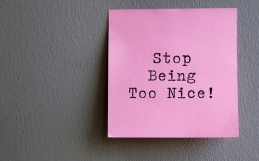We all know that a female body undergoes a natural process associated with healthy female reproductive organ function and fertility. And for a teenage girl, menstruation is the next significant milestone in her life. This marks when she has hit puberty and is now transitioning into a more physically mature adolescent.
Preparing their daughters for their first period may seem unnerving for most parents, especially with blood involved. It may even alarm your daughter, especially with this unfamiliarity. However, you don’t have to fret. There are honest, open, and effective ways to tackle it with your daughter, prepare her in advance, and help keep her at ease.
When do periods start?
For many girls, the period starts between 11 and 14. It is still considered normal if a girl begins to have her period at around 9 to 16 years old.
Periods most likely start if your child develops underarm and pubic hair, breasts, acne, and fluid discharge. She will also begin her growth spurt around this time. This will carry on as long as her cycle goes on.
A cycle is a time starting from your daughter’s day one of her first periods to the first day of her next. This typically lasts around 25 and 35 days. But in general, cycles still vary.
1. Educate her on what to expect
The best way to gear up your child for her first period is to talk to her about it and tell her what to expect as she hits puberty. Please talk about the science of menstruation rather than treating it as a taboo topic when it shouldn’t be.
It’s best to be specific as well. You can mention that her first few periods may most likely be light inflow and won’t regularly come, that it can last for a few days and may hurt at its onset, and that blood colors change from red to more dark brown shades. You can also explain that this period may come with headaches, bloating, tender breasts, and discomfort such as mild back pain or abdominal cramps, especially in subsequent cycles.
You can also lookup preteen sources like informative videos and books together online for more accurate references.
2. Talk early and often
It’s better to begin talking to your child about menstrual changes earlier. Rather than opting for a one-time tell-all discussion that may seem overwhelming, it may work well to plan on a series of conversations and let her have you answer her questions about menstruation.
If there is any misinformation, it’s best to clarify things with your daughter by asking her what she knows about menstruation and puberty. Start explaining its science and basics, and share your experiences to encourage her to gear up without fear. If she doesn’t like to talk about it, let her be but don’t cease encouraging her, especially when she needs it.
3. Prepare a period kit
You’ll never know when and where your daughter’s first period can happen. It may be difficult for her to deal with period leaks if she’s at school or away from home, and there’s no parental supervision.
Please keep your child at ease about it by preparing a period kit, which typically includes napkins, underwear, and a pack of wet wipes. If you’re a parent who wants to opt for organic materials to help save the earth, you can also encourage your child to use reusable organic pads.
Of course, in addition to preparing a kit, educate her about the supplies needed and how to use them. Let her know how to properly position a napkin on her underwear, properly dispose of it, and the importance of changing her pad every four to six hours. It’ll be easier for her to handle it better and hygienically, especially when away from home.
If you’re ever wondering when is the best time to prepare her a period kit, communicate with your child and ask her about the small changes in her body or how she feels. You’ll quickly identify if she’s already having premenstrual symptoms.
4. Get the men in her life involved in the conversation
While her dad or brothers usually don’t know how to deal with menstruation, they play an integral role in supporting your daughter. You can educate them on how to assist her when she forgets her tampons and needs someone to bring one to her.
Talking about periods with the men in your family will allow the idea of the period to be normalized and that they won’t have to feel embarrassed or secretive when buying pads for their daughter or sister.
5. Reassure her that instead of dwelling on period problems
For young girls, bleeding for a week every month may sound too scary or overwhelming to think about. This is why it’s essential to manage the information you share, reassure your child that everything will be okay, and let her know that it’s normal for girls to experience periods at her age.
You can mention period concerns but don’t dwell on them, as some of these symptoms don’t even show up early. Help her focus on the solutions. Inform her of some ways to relieve period pain:
- Usage of a heating pad
- Having a warm bath
- Taking over the counter pain relief medications
- Trying regular low-impact exercises
In conclusion
The changes associated with puberty may seem a little daunting, but there are things you can do as a parent to keep your child at ease and prepared for it. Consider the tips above to help you guide your child better adapt as she embraces this new stage of life. You can also help her manage cycle symptoms to ensure better sleep.
Author: Kat Sarmiento writes articles with the hopes of reaching out to more people. Her writing is focused on lifestyle, science, and smart hacks, that will definitely (well, hopefully) be useful to her readers.





